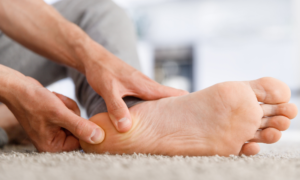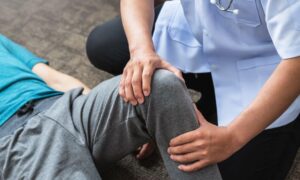Introduction
Orthopedic surgery can help treat a wide range of musculoskeletal conditions. This comprehensive guide provides patients with key information on what to expect before, during, and after orthopedic surgery. Learning about the orthopedic surgical process and recovery can help you be prepared and achieve optimal results.
Orthopedic surgery is performed by highly-trained orthopedic surgeons to treat issues related to the musculoskeletal system – bones, joints, muscles, tendons, and ligaments. Common orthopedic surgeries include knee and shoulder replacement, ACL reconstruction, rotator cuff repair, spinal surgery, and more. Surgery may be needed to relieve pain, restore mobility and function, or repair injuries.
This guide will cover:
– How to Choose an Orthopedic Surgeon
– Preparing for Orthopedic Surgery
– What to Expect During Surgery
– Recovering from Orthopedic Surgery
– Physical Therapy After Surgery
– Returning to Daily Activities
How to Choose an Orthopedic Surgeon or Orthopedic Doctor
Choosing the right orthopedic surgeon is key to achieving the best surgical outcome. Here are important factors to consider when selecting a surgeon:
– Are they fellowship-trained and board-certified? This expertise demonstrates extensive training.
– Do they specialize in your specific orthopedic condition or surgery type? Look for relevant experience.
– What is their track record of positive surgical outcomes and patient satisfaction? Ask about success rates.
– Do they listen carefully and answer your questions? Good communication is vital.
– Is their surgical facility accredited? This ensures high standards.
– Are they affiliated with a top hospital or medical center? Quality matters.
When searching for an orthopedic surgeon you can trust, it is important to do your research. Many orthopedic surgeons provide website resources and online appointment request forms, which can add convenience to the process. By visiting their websites, you can gather information about their qualifications, areas of expertise, and experience. It is crucial to check their credentials, including their educational background, board certifications, and any awards or recognitions they have received. Reading patient reviews and testimonials can also provide valuable insights into the surgeon’s reputation and patient satisfaction. Taking the time to do your due diligence will help ensure that you find an orthopedic surgeon who meets your needs and inspires your confidence.
Preparing for Orthopedic Surgery
Proper preparation can contribute to better orthopedic surgery results and recovery. Here are key ways to get ready:
– **Follow pre-operative instructions** – Your orthopedic surgeon will provide directions to follow in the days/weeks beforehand regarding medications, diet, smoking, and other factors. Carefully following these is very important.
– **Make home arrangements** – Prepare your home so it is easier to move around after surgery. This may involve installing safety bars in showers/bathrooms, setting up a bedroom on the first floor, and removing any tripping hazards.
– **Stock up on supplies** – Have any needed medical supplies, groceries, or other essentials. This makes recovery more convenient.
– **Make transportation plans** – Arrange for a family member or friend to drive you to and from the surgery center or hospital. You will not be able to drive yourself after being sedated.
– **Ask questions** – Discuss any questions or concerns with your orthopedic doctor ahead of time so you feel informed and comfortable.
Thorough preparation leads to better outcomes with orthopedic surgery.
What to Expect During Surgery
Knowing what to expect on the day of surgery can ease anxiety. Here is a typical orthopedic surgery process for most of the surgical procedures:
– You will check in at the surgical facility and be brought to a pre-operative area. Nurses will take vitals, start IVs, and provide hospital gowns.
– The anesthesiologist will discuss sedation options with you and administer medications to make you sleep comfortably during surgery.
– You are then taken to the operating room where the orthopedic surgical team prepares the sterile environment.
– The orthopedic surgeon will make incisions and perform the joint replacement, fracture repair, or other orthopedic procedure using precise techniques. Surgery can take 1-4 hours depending on complexity.
– After surgery, you are moved to a post-anesthesia recovery area where nurses monitor your vitals as you wake up. You will then be transferred to a hospital room or discharged to go home.
– Intra-operative pain medications keep you comfortable. The orthopedic surgeon will discuss how to manage any post-operative pain or discomfort.
While each orthopedic surgery is unique, knowing the general process can help you feel at ease.
Recovering from Orthopedic Surgery
The recovery process following orthopedic surgery is vitally important. Here are key ways to help your body heal:
– **Follow all post-op instructions** – Strictly follow your surgeon’s directions on incision care, treatments to help pain and swelling, medications, activity limitations, physical therapy, and more. This prevents complications.
– **Attend follow-up appointments** – See your orthopedic surgeon as scheduled to monitor your progress. Report any worrisome symptoms promptly.
– **Rest and take it easy** – Give your body proper time to heal. Avoid straining surgical areas and get plenty of rest. Listen to what your body needs.
– **Control swelling/pain** – Use ice, compression, elevation, and medications as directed to minimize swelling and surgical pain. Report uncontrolled pain to your surgeon.
– **Protect the surgical area** – Wear any supportive braces or devices as instructed. Avoid getting incisions wet or submerging them until cleared. Take all precautions.
Patience and care will help you recover safely after orthopedic surgery. Communicate closely with your orthopedic provider throughout the process.
Physical Therapy Treatments After Surgery for Speedy Recovery
Once your orthopedic surgeon clears you to start moving, physical therapy helps restore mobility and function. Goals of post-surgical physical therapy typically include:
– Regaining range of motion and strength
– Reducing pain or swelling
– Re-building proprioception
– Improving balance and coordination
– Progressing to regular activities
– Learning safe movement patterns
Your surgeon will refer you to work with a physical therapist. They will create a customized rehabilitation plan based on your procedure and needs. Following PT instructions can get you back to daily life more quickly after orthopedic surgery.
Returning to Daily Activities and Return to Work
Most patients want to know when they can resume normal activities after orthopedic surgery. Here are general timelines, but always follow your own surgeon’s specific guidance:
Driving – Typically 2-6 weeks after surgery if right leg/foot not involved. May be longer after procedures like ACL reconstruction.
Work – Returning to work depends on your occupation. Jobs involving light activity may be possible in 2-4 weeks, while manual labor may take 6-12 weeks. Discuss a plan with your orthopedic surgeon.
Exercise – Light exercise like walking or cycling may be possible in 2-4 weeks. Contact sports/weightlifting are usually off limits for at least 6-12 weeks after surgery.
Travel – Driving short distances may be possible 2-4 weeks after surgery. Air travel or longer trips are not recommended for 4-6 weeks to reduce risks like blood clots.
With patience and your surgeon’s input, you can get back to daily living after orthopedic surgery. Allowing proper healing time prevents re-injury or complications. Working closely with your orthopedic provider leads to the best outcome.
Key Takeaways
Orthopedic surgery requires careful preparation and recovery, but can greatly improve musculoskeletal problems when needed. Key takeaways include:
– Choose an experienced, board-certified orthopedic surgeon you trust
– Follow all pre-operative and post-operative instructions closely
– Attend physical therapy as directed after surgery
– Allow plenty of time for incisions and tissues to heal before resuming activity
– Communicate regularly with your orthopedic provider throughout the process
With proper orthopedic care, surgery can get you back to pain-free mobility and an active lifestyle.
FAQ About Orthopedic Surgery
What types of surgery does the center for Orthopedic Surgery & Sports Medicine perform?
Orthopedic surgeons perform a wide range of surgeries to treat orthopedic injuries, musculoskeletal conditions, and sports medicine issues. Common procedures include total joint replacements (knee, hip, shoulder), ACL reconstruction, rotator cuff repair, fracture repair, arthroscopy, and more. We offer surgical treatments to help patients regain function and live pain-free.
How can you help patients feel comfortable before and after surgery?
We ensure patients are fully prepared ahead of time by providing pre-operative instructions, answering all questions, and discussing pain control plans. After surgery, we create a personalized recovery plan to help patients heal comfortably at home or in a rehabilitation facility. Our staff is focused on patient education, asking questions, and assessing needs to make patients feel at ease.
What is the recovery like after orthopedic surgery?
Recovery time varies based on the type of orthopedic surgery. It is important to follow your surgeon’s post-op instructions closely and attend all follow-up appointments as recommended. Our team will create a rehabilitation plan that may include physical therapy to help strengthen the surgical area and restore function. With proper self-care and time to heal, most patients achieve great outcomes.
When can patients return to daily activities after surgery?
We recommend taking it slow and giving your body adequate time to heal. Your orthopedic surgeon will provide guidance on when you can resume driving, returning to work, exercise, travel and other regular activities. While recovery can take weeks to months, our highly qualified orthopedic specialists help patients get back to pain-free movement as quickly as safely possible.
What costs are involved with orthopedic surgery?
We provide patients with a full consultation to discuss costs prior to scheduling any surgery. This includes fees for the surgeon, operating facility, anesthesia, implants or medical devices if needed, and post-operative appointments. We also advise on insurance coverage and financing options. Our staff is committed to transparency and finding the best payment solution for your orthopedic care.
How do you assess orthopedic injuries?
Our experts assess orthopedic injuries through a series of diagnostic tests, including X-rays, MRIs, and physical examinations. This allows us to personalize treatment options to best suit each patient’s condition.
What measures are in place for pain control during and after surgery?
Pain management is a top priority for us. We use a combination of anesthesia during surgery and may also recommend various pain control methods for post-operative care.
What should I expect during my recovery?
You’ll have a detailed recovery plan prepared ahead of time. This plan will likely include follow-up appointments, rehabilitation exercises, and specific guidelines to help you get back to your normal routine.
Can I go home after the surgery, or will I need to go to a rehabilitation facility?
The decision to send you home or to a rehabilitation facility will depend on the type of surgery performed and your general condition. Either way, the aim is to make you feel comfortable and supported in your recovery journey.
What kind of support can I expect in terms of asking questions or getting information?
We encourage asking questions before and after your surgery. Consultation time is also important for discussing any urgent concerns or clarifications you may need.
What will my follow-up appointments entail?
During your follow-up appointments, we will assess your recovery, make any necessary adjustments to your treatment, and may also recommend additional tests or treatments like joint injections for pain management. It’s crucial to follow your surgeon’s instructions for the best recovery.
Do you offer any services to help strengthen areas affected by surgery?
Yes, our clinic offers various strengthening and rehabilitation programs to help patients regain mobility and improve their quality of life.
For appointments and inquiries:
Bronx | 813 Allerton Ave
929-209-5039
Bronx | 2488 Grand Concourse
929-209-5441
Middletown | 203 Wickham Ave
845-397-9132
*Disclaimer: This guide is aimed at providing general information and should not replace professional medical advice. Consult a qualified healthcare provider for a proper diagnosis and treatment plan tailored to you.*







